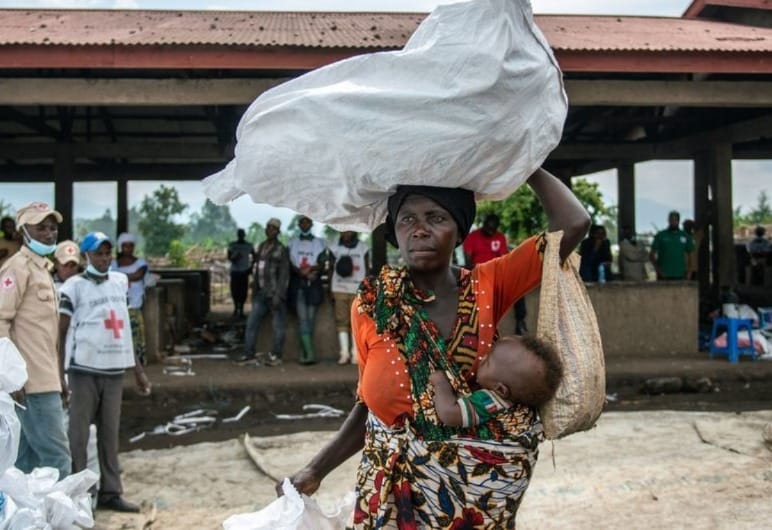Ituri province in eastern Democratic Republic of Congo (DRC) is experiencing a surge in violence. Armed groups have intensified attacks, displacing thousands and overwhelming medical facilities. A report by Médecins Sans Frontières (MSF), Risking Their Lives to Survive, highlights the urgent need for humanitarian aid and the severe lack of healthcare access.
Thousands Displaced, Civilians Targeted
The ongoing conflict in Ituri has left civilians trapped in a cycle of violence. Ethnic tensions and armed group activities continue to fuel the crisis. Since early 2025, around 100,000 people have been displaced, according to UN estimates. In January and February alone, over 200 civilians lost their lives, while dozens sustained serious injuries.
MSF medical teams in Djugu territory have treated many victims, including pregnant women and children as young as four. Many suffered gunshot or machete wounds after brutal militia attacks. The situation remains dire, with humanitarian groups calling for armed actors to protect civilians and medical facilities.
Healthcare on the Brink of Collapse
Medical services in Ituri are barely functioning. Armed threats forced the closure of Fataki General Hospital in March, cutting off essential healthcare for thousands. In Drodro health zone, nearly half of the healthcare centers have been destroyed or relocated due to violence.
Doctors continue working in dangerous conditions. One recalled performing emergency caesarean sections despite the facility being shut down. “It was risky, but without help, these women would not have survived,” he said.
Women and Children Bear the Brunt
Women and children account for most of the victims. At Salama Clinic in Bunia, over half of the 39 people treated for violent injuries by mid-March were women and children.
One mother lost her six-month-old baby and husband during an attack that also left her four-year-old injured. In another case, two sisters, aged four and sixteen, suffered severe machete wounds while their pregnant mother was critically injured.
Even displacement camps offer little safety. In September 2024, armed men attacked Plaine Savo camp in Fataki health zone, leaving five people with gunshot wounds.
Rising Needs, Dwindling Aid
Despite efforts by the Ministry of Health, MSF, and humanitarian organizations, resources remain insufficient. Food insecurity has worsened, with 43/percent of Ituri’s population facing chronic hunger. Overcrowded camps with poor sanitation have led to outbreaks of diarrheal and respiratory diseases, particularly among children under five.
MSF is calling for urgent action to protect civilians and ensure safe access to healthcare. Without immediate intervention, the crisis in Ituri will only deepen, leaving thousands at risk.



